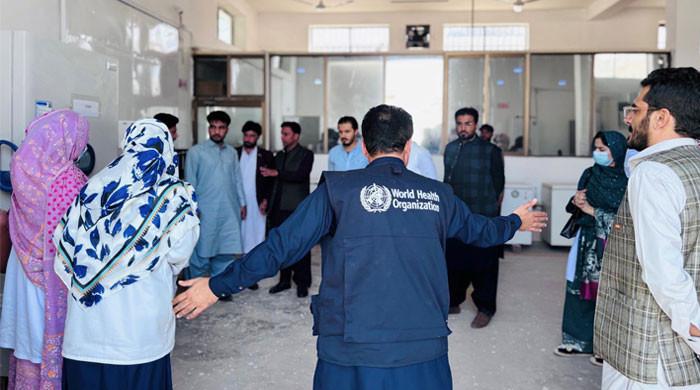The World Health Organisation (WHO) has announced partnering with the Pakistani government to train over 140,000 health workers for an upcoming nationwide measles and rubella (MR) vaccination campaign that aims to protect 35.4 million children aged 6 to 59 months.
The preventive drive — scheduled for 17 to 29 November 2025 — will supplement routine immunisation efforts and tackle an immunity gap that could otherwise place over 6.7 million children under 5 at high risk of being infected in 2026, a press statement issued by the WHO read.
In selected high-risk districts, polio drops will also be administered to children under five in partnership with Polio Eradication Initiative (PEI), whose teams will also support the measles and rubella campaign as part of a collaboration between PEI and the Expanded Programme on Immunisation (EPI).
The statement added that with funding support from Gavi, the Vaccine Alliance, comprehensive cascade training sessions supported by WHO are being conducted for health workers, including vaccinators, team assistants and social mobilisers.
“The sessions are adapted for each team and cover aspects such as quality microplanning, safe injection practices, community engagement and management of adverse events following immunisation (AEFI).”
The WHO’s support for the campaign encompasses technical guidance for planning, data analysis, readiness assessments, and monitoring and evaluation, carried out in close coordination with the Pakistan Federal Directorate of Immunisation (FDI) and its EPI program at both federal and provincial levels.
“Measles and rubella pose a significant public health threat in Pakistan, with outbreaks reported in 432 Union Councils across 101 districts, the WHO said.
According to the United Nations health agency Pakistan registered an incidence rate of 80 measles cases per million in 2025 which is four times times higher than the WHO threshold for measles outbreaks to be classified as large and disruptive.
“As of 30 September, over 57% of the more than 16,000 measles cases reported in 2025 affected zero-dose children (children who have not received any routine measles vaccine), underscoring the urgent need to reach every child,” the WHO’s statement read.


